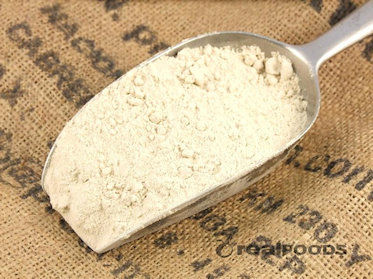|
Protein
Teff’s mother country, Ethiopia, is famous for its long-distance runners. Some attribute the health of these runners to teff. Ethiopians get about two-thirds of their protein from this tiny grain. In 150g serving of flour made from teff, our bodies can access 25% of our daily value for protein.
Fiber
Teff is a good source of dietary fiber including resistant starch which is a recently discovered class of fiber that helps us manage blood sugar, weight, and, colon health.
Gluten-Free
Teff contains no gluten and thus can provide many of the health benefits and food that we’re used to without damaging our digestive system.
Magnesium
Teff is good news for our muscular, nervous, and cardiovascular systems. It contains 69% of our daily value of magnesium. Magnesium is a cofactor for many of our body processes and can help us avoid things like migraines, heart attacks, and diabetes.
Vitamin B6
We can access 10% of our daily value of vitamin B6 (Pyridoxin) in a serving of teff. Vitamin B6 helps out all over the place. Dee Sandquist, MS, RD, CD, a spokesperson for the American Dietetic Association explained the function of vitamin B6. “It is important for cardiovascular, digestive, immune, muscular, and nervous system function. It is one of the vitamins that are behind the scenes.”
Zinc
Zinc is an ally to our immune systems and genetic code. It helps us fight off disease and builds proteins. A serving of teff can provide 10% of our needed zinc.
Calcium
And the winner is tiny teff! Teff easily leads the grains in calcium content (123 mg/1 cup cooked teff). This is almost 5 times more than whole wheat. We all know what that means for our bones and teeth!
Vitamin C
This is something special about teff. Most grains don’t boast vitamin C content. But teff is actually a good source of the vitamin so crucial to our immune system, body tissues, and skeletal system.
|

